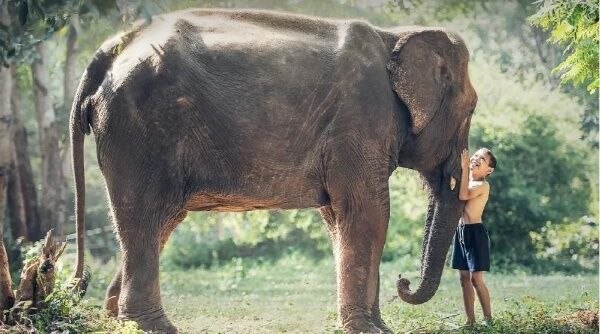New measures to protect Thailand’s elephants

As Thailand marks the country’s National Elephant Day, authorities are rolling out ambitious plans to safeguard the majestic creatures and mitigate human-elephant conflicts.
With a blend of innovation, community involvement, and legislative actions, the nation aims to secure the future of both wild and domesticated elephants.
Thailand, renowned for its vibrant culture and diverse wildlife, is home to a significant population of elephants. While celebrating National Elephant Day on March 13, authorities are highlighting the critical importance of these gentle giants in the fabric of Thai society, from their economic contributions to their spiritual significance.
To address the challenges posed by human-elephant conflicts, particularly in regions like eastern Thailand, where forest encroachment and agricultural activities intersect with elephant habitats, several agencies are spearheading comprehensive strategies.
The Department of National Parks, Wildlife and Plant Conservation (DNP) revealed alarming statistics showcasing the severity of these conflicts. Last year alone, 21 people lost their lives, and 29 others were injured in elephant-related incidents, while 24 elephants succumbed to conflicts with humans.
To counter these challenges and ensure the long-term well-being of elephants, the DNP has outlined a proactive action plan spanning from 2024 to 2028. The multifaceted approach encompasses personnel training, area management initiatives, community engagement, research and technology innovations, and collaboration with stakeholders.
Chatchote Thitaram, director of the Centre for Elephant and Wildlife Health, emphasised the importance of sustained awareness and collaboration efforts to achieve the coexistence of humans and wild elephants successfully.
Furthermore, measures are underway to bolster the protection and welfare standards for the approximately 3,800 to 4,000 domesticated elephants in Thailand. The implementation of the Good Animal Practices for Elephant Facility, effective August 19, aims to ensure humane treatment and elevate standards across elephant parks.
Recognising the pivotal role of mahouts in the care of domesticated elephants, standards and certification programmes have been developed by the Thai Elephant Conservation Centre and Thailand Professional Qualification Institute. Certified mahouts will receive compensation commensurate with their expertise, reported The Nation.
In tandem with these initiatives, the Department of Livestock Development’s Bureau of Legal Affairs is progressing with the Elephant Act, aimed at enhancing the regulatory framework for elephant welfare and operational efficiency of elephant parks nationwide.
Latest Thailand News
Follow The Thaiger on Google News:


























